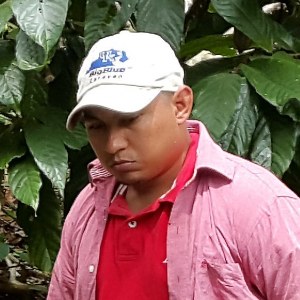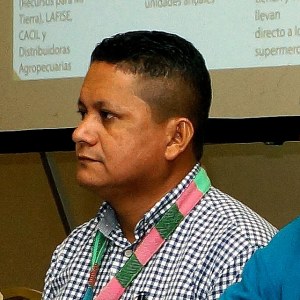To talk about the department of Olancho is to talk about cattle, milk and basic grains, which are its main agricultural products. However, cocoa is a new crop that begins to take hold. Cocoa trees were first planted in 2008, and cocoa is now being exported to Switzerland through Chocolats Halba, a company that developed an inclusive business model, as shown by the study prepared by VECO Mesoamerica (ww.vecoma.org), FAO and the Learning Alliance on the relationship between this buyer and the Association of Farmers with Agroforestry Systems for Organic Cocoa of Olancho (APROSACAO).
Cocoa, an inclusive business for the people of Olancho
Cocoa, an inclusive business for the people of Olancho
Beyond Corporate Social Responsibility
The study determined that under the perspective of CIAT’s LINK and FAO’s NMI methodologies, this relationship can be considered an inclusive business. With technical and financial support from VECO Mesoamerica, Helvetas and Chocolats Halba, APROSACAO has achieved these results:
- It is part of the "Honduras Project" chocolate sold in Switzerland, which gives recognition to Honduran cocoa.
- Cocoa farming families generate 169 dollars in additional income.
- An additional $400 per ton is paid over international cocoa prices.
- 25% operating profit margin.
- 85% of the cocoa sold to Chocolats Halba is premium quality.
- Women are involved in the production of hand-made chocolates and postharvest activities, while young people have set up an organic fertilizer plant.
We began to produce to see what was happening, then we saw there is a market. Working with Chocolats Halba gave us access to loans for infrastructure and quality training. Now, every fifteen days we have income from sales and we also have bonuses for certifications.

Without a doubt, good principles of inclusion
It is not easy to define what makes a business inclusive, so the principles of inclusion of CIAT’s LINK and FAO’s NMI methodologies were evaluated. The results showed that the model is inclusive because:
- Governance is consistent and transparent.
- Farmers have access to financial and non-financial services.
- There are good relations between both actors.
- There is a link to a high-value market.
- Although results are measured, additional progress evaluations are required.
- Albeit young men and women are involved, actions need to be improved.
Beyond buying and selling
When a buyer finds a supplier that delivers a good product, it is like finding a gold mine. However, it is very different when a businessman decides to invest funds and, moreover, share the risks of the business. This is precisely what Chocolats Halba has done since 2007 when the overall picture of Honduran cocoa was not flattering, production was affected by diseases, and international prices were low. According to Chocolats Halba, the business has good future prospect.
Our business model has a strong social character. It is trade fair that takes an interest in cocoa farmers. We pay prices very differentiated from international prices to help improve living conditions of these small farmers and, at the same time, environmental conservation in Honduras.

Cocoa is a tree that begins to bear fruit until the third or fourth year. On the other hand, it is grown by small-scale farmers. Despite these constraints, a model was implemented whereby Chocolats Halba defined a clear price policy, volume demands and quality standards. In addition, the company financed infrastructure and organic certification, and purchased wet cocoa at 0% interest. APROSACAO, with support from VECO MA and Helvetas, received technical assistance in production and post-harvest, as well as the establishment of 20 Farmer Field Schools (FFS), which have enabled good quality cocoa production.
In 2013, APROSACAO sold 14 tons of fermented cocoa to Chocolats Halba. The company, however, can buy up to a thousand tons per year across Honduras, which under the current terms of negotiation is clearly an incentive to increase production areas, as well as to promote the entry of new members and young people. APROSACAO has 460 hectares of land planted with cocoa, of which 140 are in production.